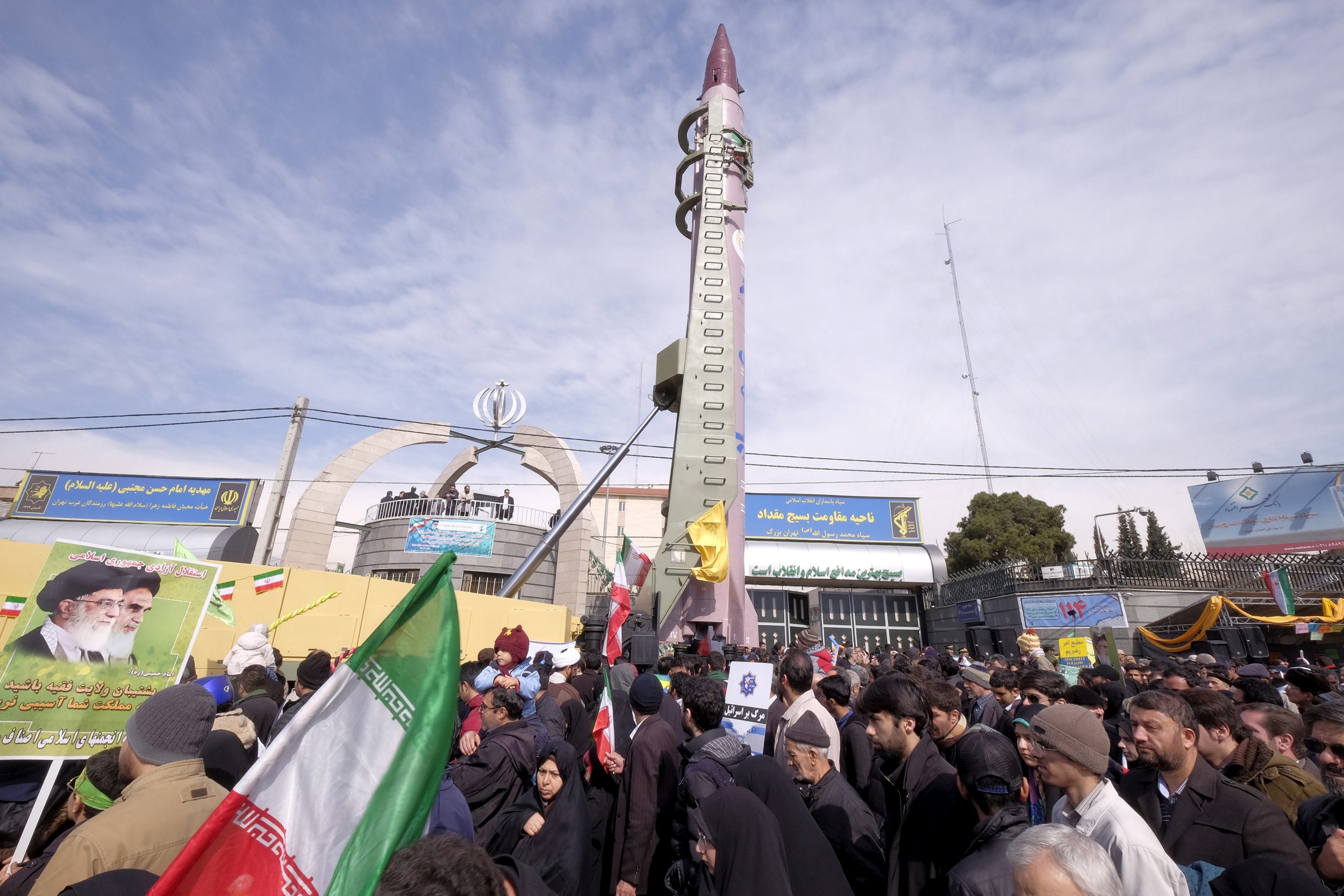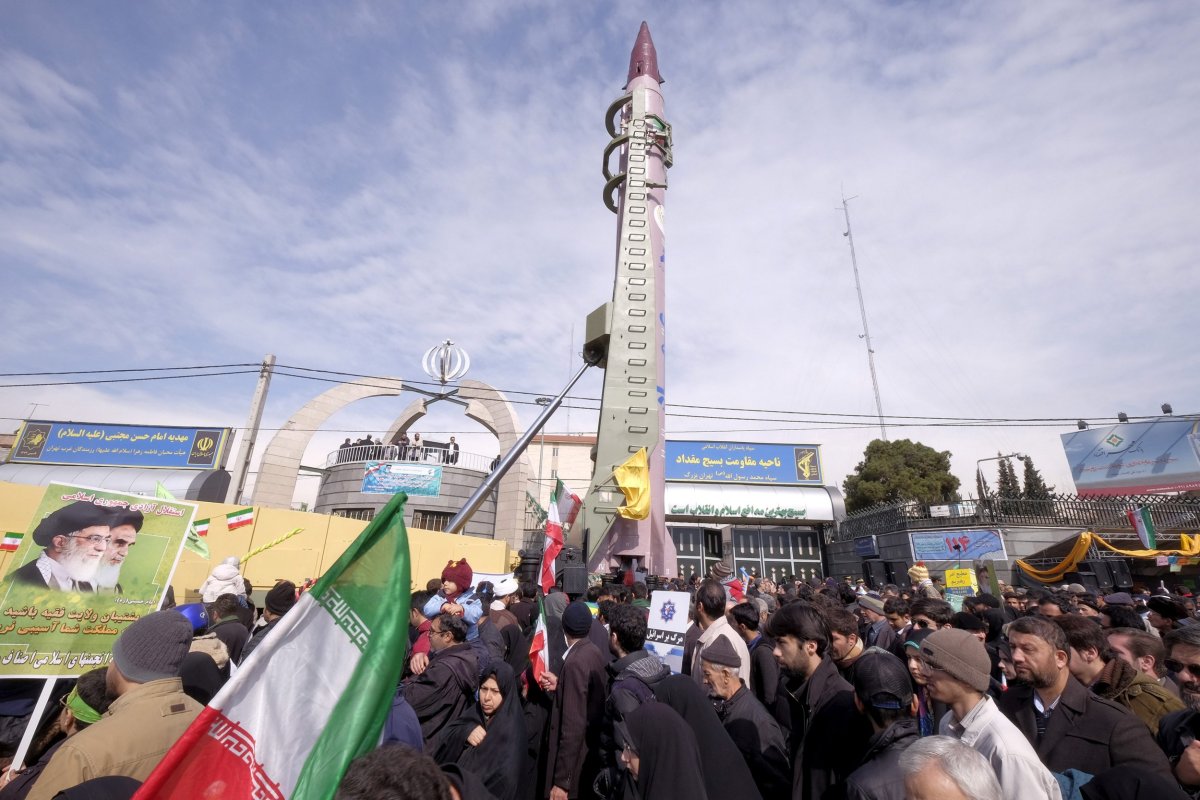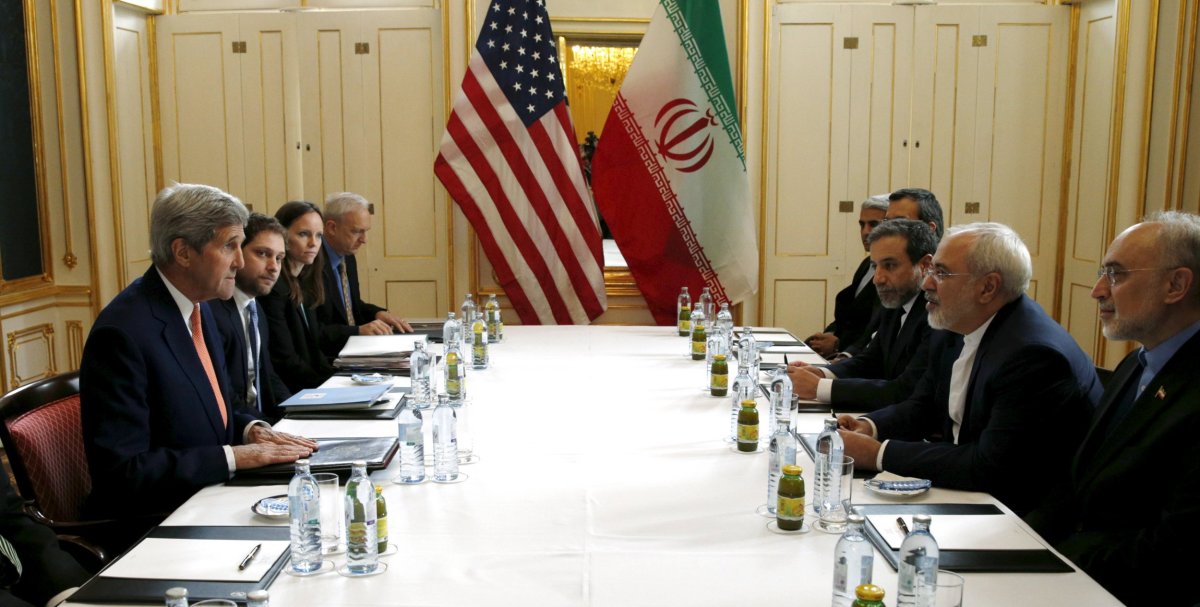
Reports emerged Thursday suggesting President Donald Trump was doing his utmost to kill a landmark nuclear deal with Iran, a move that experts say would have far-ranging and potentially even deadly consequences.
Trump has long been a vocal opponent of the Joint Comprehensive Plan of Action (JCPOA), a treaty signed by the U.S., Iran and five other leading powers in 2015, during the administration of former President Barack Obama. The deal, which aimed to restrict Iran's nuclear development by lifting billions of dollars of U.S. sanctions, has been met with skepticism by conservatives in both the U.S. and Iran. With Trump reportedly pushing for increased inspections on Iranian military sites, according to the Associated Press, and talk of pursuing regime change coming from top U.S. officials, those whose experience has put them on the front lines of war have spoken out against becoming embroiled in another major international conflict.
Related: Is Trump preparing for war with Iran over the nuke deal?
A military response would be "simply a bridge too far for me," retired Army General Paul Eaton said during a teleconference call hosted by a pro-Israel Jewish-American nonprofit liberal advocacy group, J Street.

Eaton, who played a crucial role in training and reshaping the Iraqi army after the 2003 U.S. invasion, said Iran's military would prove a much more formidable foe than that of former Iraqi President Saddam Hussein or even of Syrian President Bashar al-Assad. Eaton argued that if Trump sabotages the nuclear deal, stopping Iran from pursuing nuclear weapons "would require regime change, which requires full scale-invasion, which is not tenable." He described such an action as a "full-court press" that would involve European allies on a far greater scale than the mere 59 Tomahawk cruise missiles used to check Assad's military after Trump accused Damascus of sponsoring a chemical weapons attack in April.
A large-scale attack would have a deep impact on the region and likely draw in its closest U.S. ally, Israel. Israeli Prime Minister Benjamin Netanyahu was one of the deal's foremost critics, and risked his political relationship with Obama to publicly deride the treaty in a number of high-profile forums, including the U.N. and the U.S. Capitol. While Netanyahu has remained a staunch critic of Iran, he has been notably silent in recent months. Amram Mitzna, a liberal Israeli politician who is a retired major general, said this was likely because Netanyahu, like Mitzna himself, may have realized "that such a deal is better than no deal" and that the consequences of it failing could be severe.
"The military alternative is not an alternative," Mitzna said. "I don't think you achieve something that's not achievable by diplomacy using military power," he later added.
Israel accuses Iran of threatening its existence via Tehran's military expansion and its funding of militant groups, such as Lebanon's Shiite Muslim Hezbollah, that operate around and sometimes within Israel's borders. Iran, on the other hand, vows to punish Israel over its treatment of Palestinians. Iran also maintains a bitter feud with another U.S. ally in the Middle East, Saudi Arabia. Forces supported by the U.S., Saudi Arabia and Israel have already clashed with those backed by Iran, but the heated state of U.S.-Iran relations goes beyond the region.

Trump has tried and failed to detect Iranian noncompliance with the terms of the deal, but his latest effort to implement additional, more stringent inspections on military sites deemed to be suspicious has European observers concerned. While the request still needs to be approved by the International Atomic Energy Agency, Ellie Geranmayeh of the European Council on Foreign Relations' Middle East and North Africa Program said Trump should expect to see heavy resistance to his initiative.
"I don't think we should underestimate the European capacity to push back," Geranmayeh said. "The nuclear deal isn't just about Iranian policy anymore, it's about safeguarding international law," she added, noting the intense downturn in relations between the U.S. and traditional European allies as Trump abandoned the Paris climate deal, among other multinational agreements.
"The Iran deal has become the last safeguard of European defense for preserving international norms."
Uncommon Knowledge
Newsweek is committed to challenging conventional wisdom and finding connections in the search for common ground.
Newsweek is committed to challenging conventional wisdom and finding connections in the search for common ground.
About the writer
Based in his hometown of Staten Island, New York City, Tom O'Connor is an award-winning Senior Writer of Foreign Policy ... Read more
To read how Newsweek uses AI as a newsroom tool, Click here.








